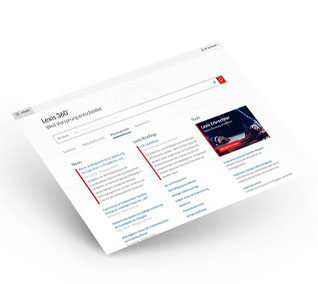Why do good bankers at times respond unanimously with the same disastrous strategy? The paper tries to explain how and why bank failures unfold as a sequence of evolutionary and revolutionary events with escalating commitment and escalating herd instinct. Whereas failures of individual banks are inevitable and necessary to reduce overcapacity in the financial industry, the concern here is on causes for a failure epidemic on the industry level. Under certain conditions banks repertoire to act can become funnel-shaped down to herd-like behaviour that finally cuts out the conflict stage. The basic message of the paper is that inconsistent decision rules, too rigid bank regulation, stakeholder-shaped incentive structures within banks and uncritical adoption of so called modern management concepts may force banks into herding behaviour. For each member of the bankers group it is easier and less risky to follow rigid rules and accept misleading guidance by "renowned modern management gurus" than to enter into conflict with other members of the group. This behavioural pattern parallels with Lemming behaviour. Modern management thinkers and bank regulators may play their role in showing the herd in which direction the banks should move fastest. The conclusion is drawn that it is necessary to curb Lemming-type behaviour by altering the incentive structure faced by the various agents and that banks should build in conflict stages in their management processes to avoid that trap.

Lemming Banking: Conflict avoidance to eliminate excess capacity by herd instinct?1)1)This paper is based on an earlier version that was presented at the 22ndColloquium of the Société Universitaire Européenne de Recherches Financières (SUERF), April 27-29, 2000, Vienna.
The opinions expressed are those of the authors and do not necessarily reflect those of institutions to which the authors are affiliated. The authors gratefully acknowledge partial support by the Jean Monnet Grant.

AufsätzeGerhard Fink Peter HaissÖBA 2002, 9 Heft 1 v. 1.1.2002
Inhalt
- 1. Introduction: Bank Failure as a Process
- 2. Lemming Banking
- 3. Banking Regulation: Cure or Cause of Bank Failures?
- 4. Commercial Bankers' Accountancy-based Decision Rules
- 5. Commercial Bankers following Investment Bankers Decision Rules
- 6. Stakeholder-Shaped Incentive Structures
- 7. The Role of New Management Concepts and Other Regime Shifts
- 8. Mimic Behaviour and the Intertemporal Nature of Banking
- 9. Conclusion: Rebuild Incentive Structures and Conflict Stage
- References
